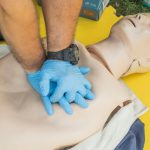Understanding Mindfulness in Substance Abuse Recovery
Mindfulness is fundamentally important in the journey of substance abuse recovery. It stands as a practice that involves focusing one’s attention on the present moment non-judgmentally, fostering self-awareness and acceptance. The principles of mindfulness include maintaining a heightened level of awareness, paying attention deliberately, and nurturing an attitude of compassion towards oneself and surroundings. These elements can be transformative, particularly for individuals grappling with recovery.
The significance of mindfulness in the healing process lies in its power to mitigate stress, enhance self-regulation, and cultivate a deep-seated sense of peace and equilibrium. By anchoring oneself in the “now,” individuals can break free from destructive thought patterns that often trigger relapse and impede recovery efforts.
Additional reading : Unlocking the Benefits of Vitamin D for Autoimmune Disease Control: An In-Depth Guide
Moreover, mental health and mindfulness are profoundly intertwined. By fostering emotional health, mindfulness helps individuals manage anxiety, depression, and impulsivity, all of which are common among those in substance abuse recovery. This holistic approach not only aids in navigating recovery but also facilitates the reclaiming of a resilient and fulfilled life post-addiction. Engaging consistently in mindfulness practices enables individuals to develop enduring coping mechanisms critical for their recovery journey.
Evidence of Mindfulness Reducing Relapse Rates
Mindfulness-based interventions have demonstrated a significant impact on reducing relapse rates among those recovering from substance abuse. Recent scientific studies indicate that incorporating mindfulness practices into recovery programs can substantially diminish the likelihood of relapse. Participants engaged in mindfulness-based relapse prevention (MBRP) have shown lower rates of returning to substance use than those relying solely on traditional approaches. This highlights the efficacy of mindfulness in maintaining recovery.
Also to see : Unlocking Mental Wellness: The Impact of Telehealth on Rural Community Care
Statistical evidence supports these findings, showcasing improved mental health outcomes and extended periods of abstinence for individuals integrating mindfulness exercises. For example, a study published in the Journal of Substance Abuse Treatment revealed that individuals practicing mindfulness reported a 47% reduction in cravings and a 36% decrease in emotional distress levels.
Case studies further underscore the benefits of mindfulness, with numerous success stories illustrating personal recovery triumphs. For instance, individuals applying mindfulness techniques like meditation and mindfulness journaling often experience enhanced self-control and reduced impulsivity, factors crucial in preventing relapse. These testimonials enrich the growing body of evidence that mindfulness is a powerful tool in sustaining long-term recovery and promoting overall well-being.
Practical Mindfulness Techniques for Individuals in Recovery
Adopting mindfulness exercises can be pivotal in one’s recovery journey. These practical techniques are designed to cultivate self-awareness and foster enduring emotional resilience.
Breathing Exercises
Breathing slowly and deeply enhances mental clarity and focus. Count each inhale and exhale to ten, providing a grounding sensation and reducing anxiety. Practice this technique daily to develop a calming routine.
Body Scan Meditation
Body scan meditation promotes relaxation and bodily awareness. Lying down comfortably, gently focus on different body parts from head to toe. Noting sensations without judgment leads to a deeper sense of serenity and cognition, which is beneficial in coping with stressors linked to recovery.
Mindfulness Journaling
Mindfulness journaling offers a reflective avenue for exploring emotions and thoughts. Documenting personal insights after mindfulness practices allows individuals to track recovery progress and identify patterns in behaviours and triggers. This daily habit encourages self-expression and provides insights into growth and challenges.
Incorporating these mindfulness techniques can significantly enhance the effectiveness of recovery strategies. Practicing them consistently enables individuals to build strong coping mechanisms, supporting their path to a healthier, substance-free life. This holistic incorporation of mindfulness facilitates transformation and resilience.
Personal Stories and Testimonials
Exploring personal experiences through testimonials provides a powerful lens into the effectiveness of mindfulness in recovery. From various walks of life, individuals have shared compelling narratives demonstrating how mindfulness has transformed their recovery journeys. These testimonies highlight not only the triumphs over substance abuse but also the valuable role mindfulness has played in their healing process.
Mindfulness-based practices have become pivotal in these individuals’ lives, offering tools to navigate recovery challenges. Many recount discovering resilience they were previously unaware of, attributing this newfound strength to consistent mindfulness exercises. Their stories often describe a shift in perception—a movement from focusing on past missteps towards embracing the present moment.
Furthermore, these personal accounts underscore the diverse applications of mindfulness, from daily meditation routines to integrating breathing exercises in stressful situations. The variety reflects the personalised nature of mindfulness practices, tailored to address individual needs and preferences. These firsthand stories not only inspire but also serve as valuable learning experiences for others seeking hope and practical strategies on their recovery paths. By sharing diverse perspectives, these testimonials contribute to a broader understanding of the profound impact mindfulness can have on substance abuse recovery.
Resources for Further Learning on Mindfulness and Recovery
Expanding your understanding of mindfulness in recovery is crucial, and numerous resources are available to support this journey. Explore a variety of content tailored for different learning styles, including books, articles, and digital material.
-
Books: Titles such as “The Miracle of Mindfulness” by Thich Nhat Hanh and “Wherever You Go, There You Are” by Jon Kabat-Zinn offer profound insights into integrating mindfulness into daily life and recovery.
-
Articles and Journals: Scholarly articles and journals provide scientific studies on the efficacy of mindfulness-based interventions. Sources like the Journal of Substance Abuse Treatment often feature research showcasing positive outcomes in recovery settings.
Workshops and courses serve as excellent platforms for learning and engagement. They offer experiential learning through guided sessions and group activities focusing on mindfulness skills and techniques. Participating in workshops can deepen your practical understanding and implementation within your own recovery process.
Online resources and communities, including platforms like Insight Timer and The Mindfulness Project, offer a wealth of courses, guided meditations, and forums. Engaging with online communities fosters a supportive environment for sharing experiences and learning collectively. These resources collectively empower individuals to incorporate mindfulness effectively into their recovery journey.
Mindfulness as Part of a Comprehensive Recovery Program
Incorporating mindfulness into a comprehensive recovery program enhances the effectiveness of traditional methods, offering a balanced, integrated approach. Combining mindfulness with conventional therapy and support groups provides a multi-layered support system, enriching the recovery experience. Mindfulness practices become a fundamental aspect of holistic healing, promoting overall well-being.
Mindfulness, when woven into therapy sessions, helps individuals remain present, thus increasing the efficacy of therapeutic techniques like Cognitive Behavioral Therapy (CBT). This integration encourages individuals to process emotions in real-time, assisting with deeper emotional exploration and healing.
Support groups benefit substantially from incorporating mindfulness exercises, fostering a communal environment where participants collectively engage in practices like group meditation. These shared experiences enhance the sense of connection among members, reducing feelings of isolation commonly experienced during recovery.
Recommendations for a holistic recovery approach emphasize the combination of traditional therapy, mindfulness, and supportive therapies like yoga and art therapy. By nurturing both mental and physical health, individuals develop resilience and coping strategies essential for sustained recovery. This multifaceted approach ensures that recovery extends beyond sobriety, focusing on cultivating a fulfilled and balanced life.





